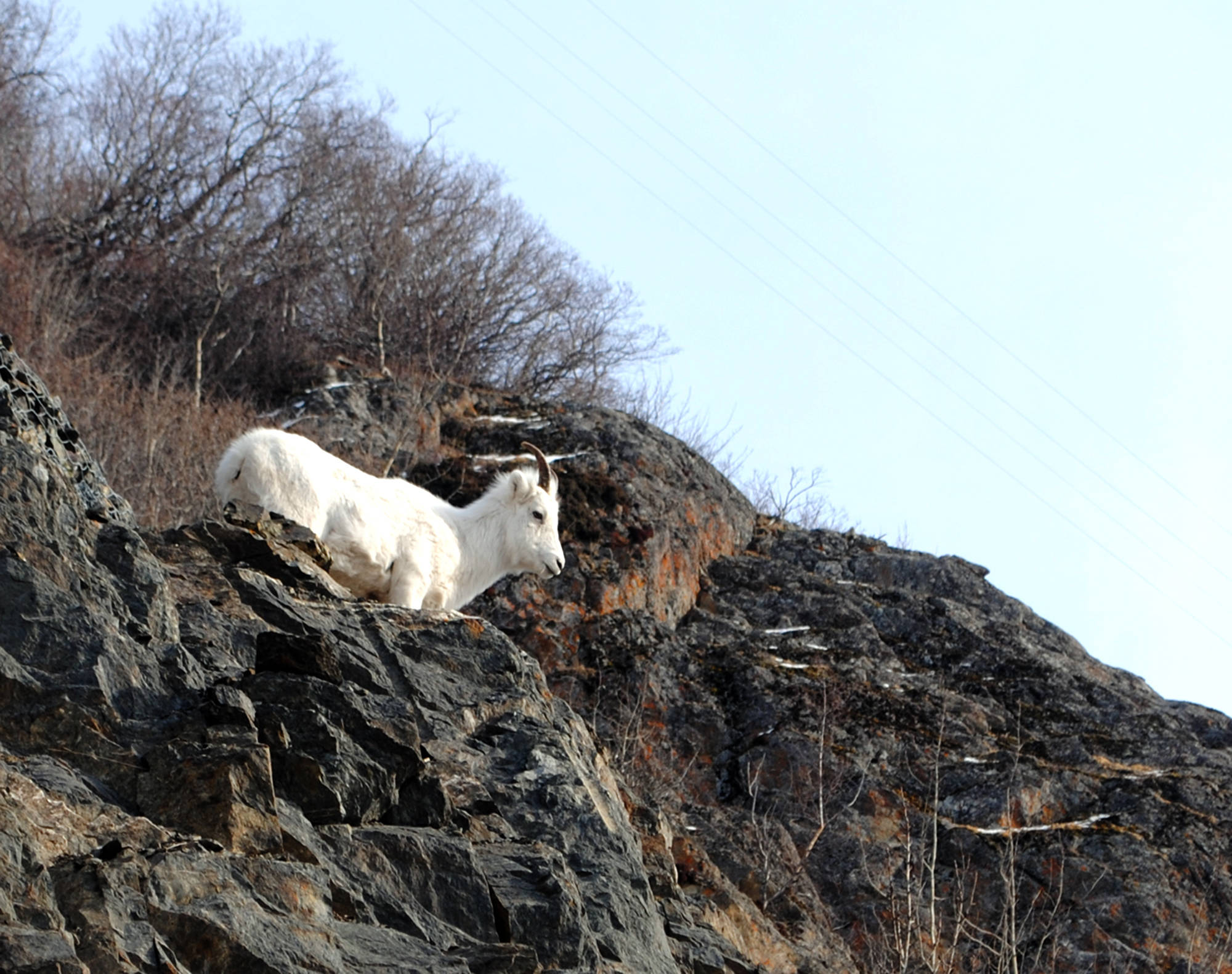A strain of bacteria known to cause respiratory issues in Lower 48 bighorn sheep has been detected in Alaska, and on the Kenai Peninsula, for the first time, putting farmers and wildlife conservationists on alert.
Mycoplasma ovipneumoniae (Movi) was recently confirmed in four Dall sheep from the Talkeetna Mountains and in two mountain goats from the Kenai Peninsula, according to Alaska Department of Fish and Game.
Movi is a bacterium that lives in the respiratory tracts of domestic sheep and goats, which can sometimes, but not always, lead to significant respiratory diseases like pneumonia. The wild sheep and goats, although they tested positive for the bacterium, showed no sign of illnesses.
“We are not aware of any pneumonia outbreaks or die-offs in Dall sheep or mountain goats related to this bacterium,” according to a release from Alaska’s Department of Fish and Game.
Movi has led to die-offs in Lower 48 bighorn sheep populations following pneumonia outbreaks, according to the release. The findings, although not conclusive, raise further questions and concerns, especially in relation to domestic sheep and goat populations.
Last year, the Board of Game voted down Proposal 64, which would have removed domestic sheep and goats from the state’s “clean list,” requiring owners to permit each animal.
The proposal, submitted by the Alaska Wild Sheep Foundation, cited concerns about the possible communication of Movi from domestic sheep and goats to wild Dall sheep and mountain goats, which are popular trophy hunting animals in the state.
“The farm bureau still thinks we need to find someway to move forward to keep our mountain goats and Dall sheep healthy without destroying the domestic sheep and goat industry,” Amy Seitz, executive director of the Alaska Farm Bureau, said. “There’s still a lot of questions and the more research that goes into it, the better we’ll be able to understand the pathogen. We just want to make sure we don’t stress out our wildlife and weaken any immunities.”
Seitz said she wanted to remind domestic sheep and goat owners to keep wild Dall sheep or mountain goats away from their farms.
“If they do see a mountain goat or a Dall sheep near their farm, call Fish and Game right away,” she said. “They want to know if any of the wild sheep or goats are coming to their farms. I know some of our sheep and goat owners have dogs with their flock, which doesn’t let their domestic herd touch noses with a stranger.”
Kevin Kehoe, president of the Alaska Wild Sheep Foundation, said in a press release that it makes sense that the positive Dall sheep were found in the Talkeetna Mountains since sheep and goats live in close proximity to their “wild cousins.”
“Today’s news comes as a terrible blow to me and fellow wild sheep enthusiasts including the folks that enjoy watching sheep from the Glenn Highway,” Kehoe said.
Kehoe urged the Department of Fish and Game to require Movi testing for all domestic sheeps and goats, with subsequent mitigation.
“We are willing to foot the bill,” the Alaska Wild Sheep Foundation release states.
The Department of Fish and Game will continue to monitor and research Movi in Alaska, according to Fish and Game.
The mountain goats were from a sample of 39 live captured and released on the Kenai Peninsula and in Southeast. Only goats taken from the peninsula tested positive. The 136 tested Dall sheep were taken by hunters.
Reach Kat Sorensen at kat.sorensen@peninsulaclarion.com

